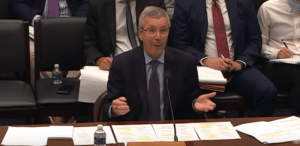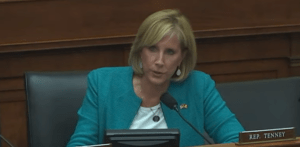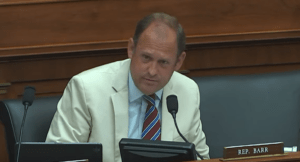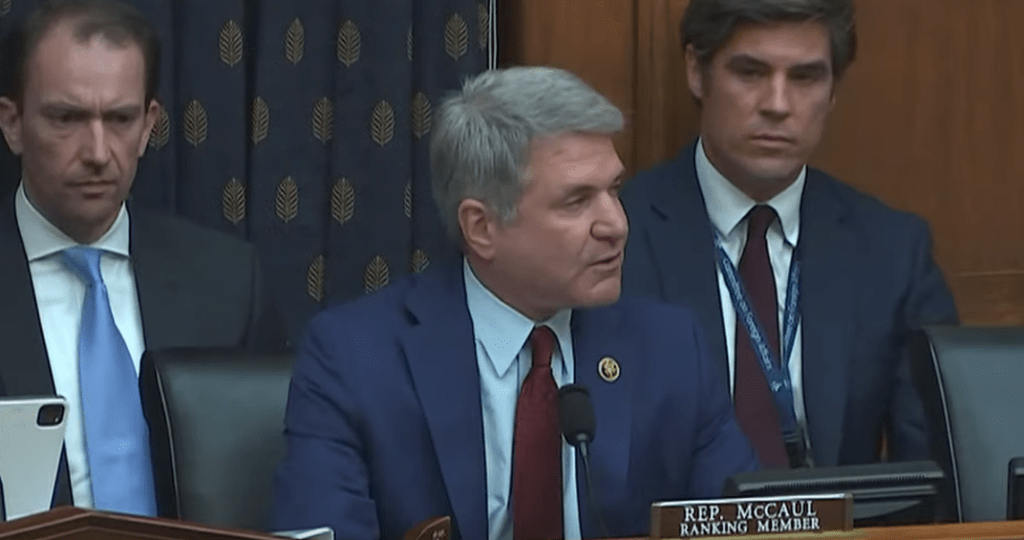In a roughly two-hour House Foreign Affairs hearing with a senior official from the Bureau of Industry and Security (BIS) this week, the initial focus on export controls to Russia switched to export controls against China and its military contractors.
The hearing, titled Assessing the U.S. Economic Policy Response to Russia’s Invasion of Ukraine, pivoted rather quickly to talks about China. Over 600 companies are on the BIS Entity List with 107 new companies added by the Biden administration. Some Committee members asked why the U.S. was waiting for China to invade Taiwan before imposing more restrictions on high-tech exports, like microchips, which can be used by the military.
Alan Estevez, the Under Secretary of Commerce for Industry and Security at BIS, was the only person to provide testimony. The hearing was held on July 10. Estevez has been in his position for around three months, coming to the Commerce Department from the Department of Defense.
He said export restrictions on Russia were working.
“We have choked off exports of high tech to Russia, and overall exports to Russia have fallen 88% in value since last year. Since our controls have taken effect, worldwide semiconductor exports to Russia have fallen by around 75%. This is an example of robust export controls,” he said, adding that it could not be possible without dozens of other high-tech producing countries involved.
On the China front, Estevez said he would do “everything in my power” to make sure sensitive technology does not get into the hands of Chinese military contractors. This is where the question-and-answer session got sticky, with concerns over the CHIPS Act – a piece of legislation that will fund domestic semiconductor producers via tax breaks and other incentives – and questions about why Wall Street can still invest in companies on the Entity List.

Alan Estevez, the Under Secretary of Commerce for Industry and Security at BIS.
“China remains a complex challenge,” Estevez said. “We are closely reviewing our policy on China.” When asked in the Q&A session by Rep. Susan Wild (D-PA-7) what he thought of the need for the CHIPS Act, he called it “absolutely essential to national and economic security.”
Notes from the Q&A Session:
Rep. Michael McCaul (R-TX-10), ranking member of the House Foreign Affairs Committee, asked Esteves if he had heard about YMTC, calling it a national state-owned semiconductor champion closely tied to the CCP. Apple just signed a deal with them to be a key chips provider for its global iPhone production, most of it made in China.
McCaul asked if YMTC should be on the Entity List.
Estevez: Anyone I put on the entity list I want to make sure it is solid because I don’t want lawsuits and have to remove companies from the Entity List because of it. I want it to stick.
See CPA policy paper on YMTC and Apple, titled Silicon Valley Sell-Out: The Five Risks of an Apple-YMTC Deal.
Rep. Steve Chabot (R-OH-1) asked if the BIS role should be to make sure that China does not monopolize the industries of the future.
Estevez: I certainly think it is our mission is to stop them from harming our national security…or foreign policy objectives and in some cases that means stopping them from monopolizing industries, though they certainly have already done that.
Chabot: As you know, Intel is looking to build a semiconductor fab outside of Columbus, Ohio, but because there is a shortage of tools to make these chips, that facility might not be able to even make chips for some time. China is buying up most of that equipment across the globe. Should we have export controls on that so Ohio workers don’t have to wait in line behind Chinese chip manufacturers?
Estevez: First, we need to pass the CHIPS Act to begin with. We should have restrictions on the highest-end tooling and are working on some policies on that. I think if we passed CHIPS funding the market would level itself out.
Estevez did not seem certain about using export controls to keep semiconductor machine equipment from being sold to China instead of to local manufacturers.
Rep Claudia Tenney (R-NY-22): Do you agree that Chinese military end users of our advanced technology is a threat to our national security?
Estevez: Absolutely.
Tenney: Ok, so that being said, if the Chinese military end users are a threat to U.S. national security why are more than half of the military companies on the Department of Defense list of Chinese entities not on the BIS list?
There are two separate lists managed by the government here – one by Commerce at BIS and one by the Department of Defense. Both lists require export licenses, meaning a U.S. company needs to be granted permission to sell a piece of computer hardware or software to a Chinese company on the list.
Estevez: Good question. I ask that same question. There are different rules for different lists. I am talking to them about harmonizing our lists.
Tenney asked about Chinese oil giant, CNOOC. They are on the Entity List, but licensing for exports of crude oil to these companies on the list gets done on a case-by-case basis
Tenney: My constituents are paying $5 a gallon for gasoline right now and we are selling it to a China company on the Entity List.
Tenney asked Estevez to work unilaterally rather than always take the preferred allied approach. He said he does not like taking unilateral measures, but it was one of the tools in the toolkit if needed.
Rep. Ann Wagner (R-MO-2) said that export controls were a “key defense against China subversion of American intellectual property.” And Rep. Andy Barr (R-KY-6) wondered why companies on the Entity List were still allowed access to U.S. capital markets. A small portion of Chinese defense contractors are banned from U.S. capital markets – which means investment funds here cannot own them and have had to divest starting last August. A handful of Entity List names are publicly traded in Shanghai, Shenzhen and Hong Kong and are not off limits for U.S. fund managers.
 Rep. Barr: If we shouldn’t be exporting technology to these companies than we should also be blocking capital flows to these companies, in my opinion.
Rep. Barr: If we shouldn’t be exporting technology to these companies than we should also be blocking capital flows to these companies, in my opinion.
Rep. Brad Sherman (D-CA-30) closed the hearing, sounding like he was not sure export controls worked. He noted that China can often buy the same, or close to the same, technology from elsewhere. Estevez counted and said that the advanced tech countries were going along with the U.S.
“We have an enormous trade deficit with the world. We need to sell something,” Sherman said, revealing himself to be somewhat of an export control skeptic. “We should not be surprised when China buys physical assets in the U.S. because we have created a circumstance where they don’t have to buy our goods. We have tariffs on them but when you look at all the goods imported from China, you’re looking at an average tariff rate of about 5%. We are giving China all the access it wants to our market and that weakens us. It gives them the position to have all the cash they need to buy assets, rather than goods. Every time we refuse to export something to them, they are just able to get it from someplace else.”
Estevez said they are fine-tuning what they can and cannot export to China but insisted on the work with allies approach.
Rep. Susan Wild asked if there was any evidence that the explosion in Chinese computer chip exports meant they were transshipping sanctioned computer hardware to Russia.
Estevez said there was no intelligence that suggested China was helping Russia evade sanctions of high-tech goods. “We have not seen any concerted effort on China to backfill Russia,” Estevez told Wild. “We are not seeing China companies helping Russia.”













